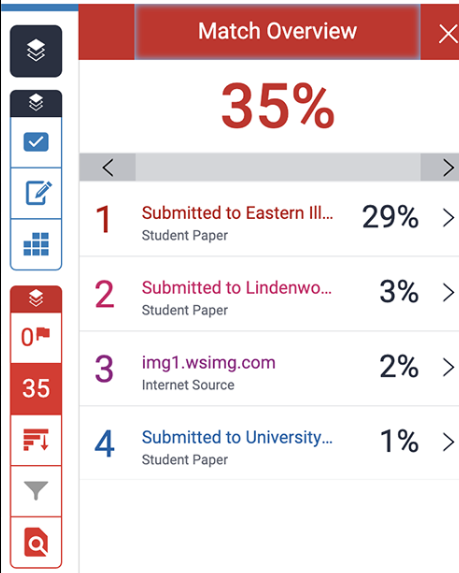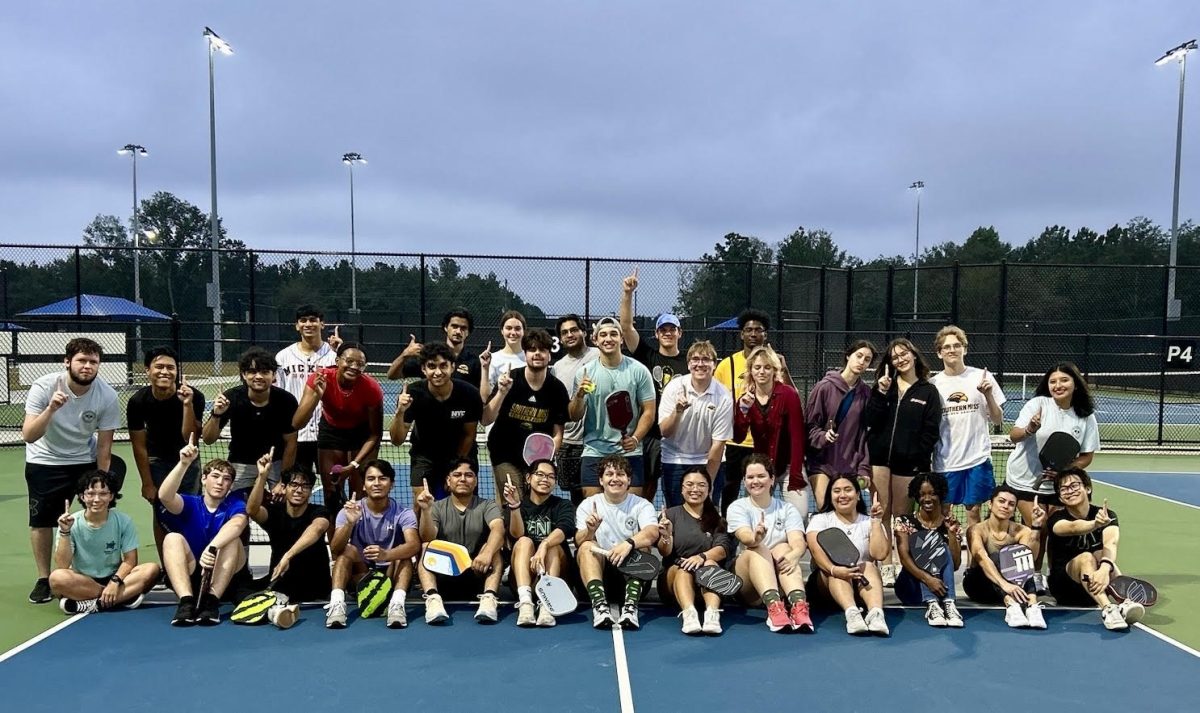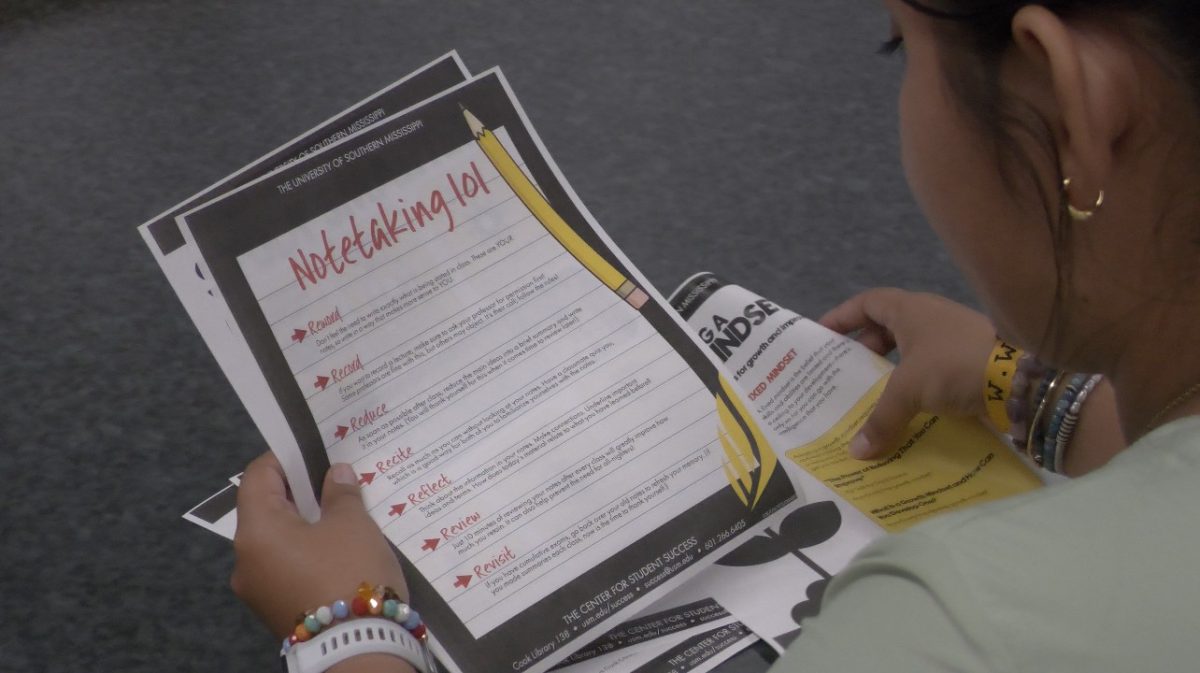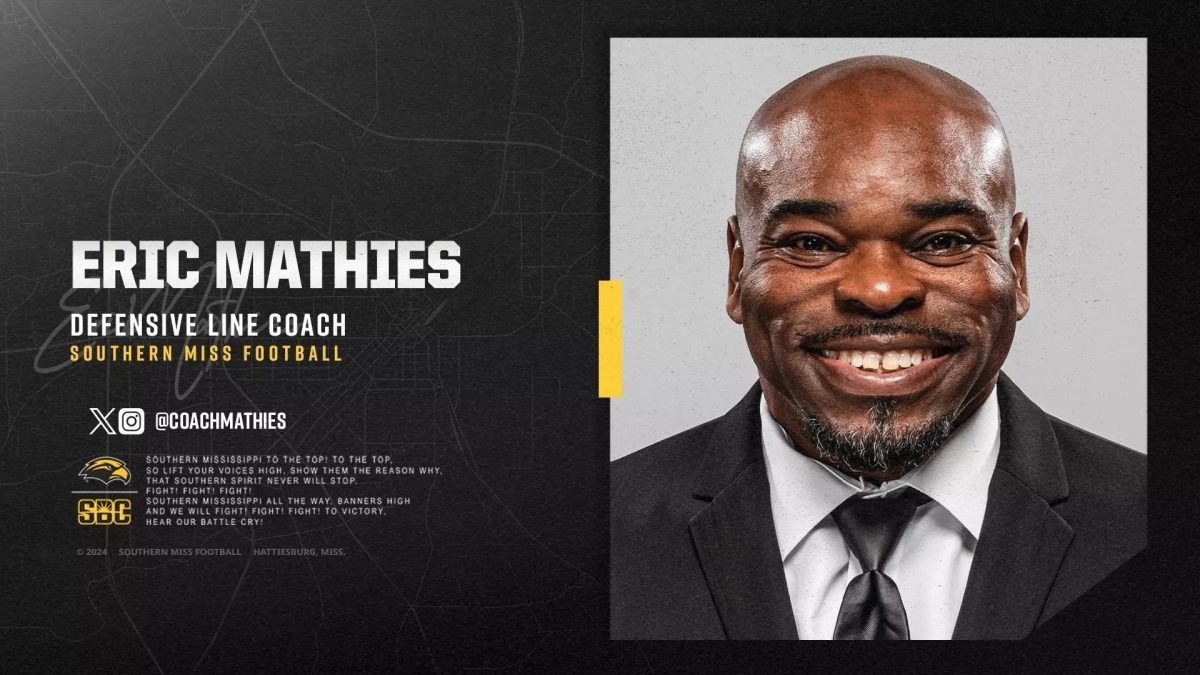The School of Mathematics and Natural Sciences recently hosted the eighth Rayborn Lecture Series of Physics and Astronomy, featuring Dr. Daniel Neumark of UC Berkeley as this year’s speaker
The Rayborn Lecture Series was established in 2015 by Dr. Grayson H. and Mrs. Jane Dishong Rayborn through the USM Foundation. Dr. Rayborn was a faculty member at Southern Miss who served as chair of the Department of Physics and Astronomy, associate dean of the College of Science and Technology, and director of the School of Mathematical Sciences, as well as professor of physics and astronomy. He was awarded the title of professor emeritus of physics and astronomy after retirement.
According to Dr. Theofanis Kitsopoulos, the director of the school of mathematics and natural sciences, Neumark’s research aligns closely with Rayborn’s discipline, who was also a physical chemist.
“Our speakers were traditionally quantum physicists and astrophysicists,” Kitsopoulos said. “And for this lecture, we have someone whose research aligns closer to Dr. Rayborn’s research.”
Neumark is a chemical physicist from Berkeley. In his lecture titled “Chemistry Under the Arrow,” Neumark talked about the transition state in a chemical reaction and the importance of understanding the transition state for catalysis.
The transition state of a chemical reaction is a very brief period of time where atoms exist in a very unstable and high-energy state. It is the state where the substance is neither what it was before the reaction, nor what it will be after the reaction. It is essentially, like the name suggests, a transition period from one phase to another.
Neumark’s research involves studying the dynamics of reactions, spectroscopy, and ultrafast x-ray science. His works involve increasing the fundamental understanding of chemical physics and have little applications outside of academia.
Neumark talked about fundamental research and why it is so important despite it not getting as much attention.
“Your iPhone did not grow on a tree,” Newmark said. “It took years of fundamental research on semiconductors and electron-hole pairs to make that happen.”
Neumark explained how most of the technology that we have today was once fundamental research, and that fundamental research is essential to science.
Some of the past speakers in the series were Dr. Barry Barker from the National Security Agency, Dr. Sara Seager from MIT, and Dr. Michelle Wang from Cornell.




































